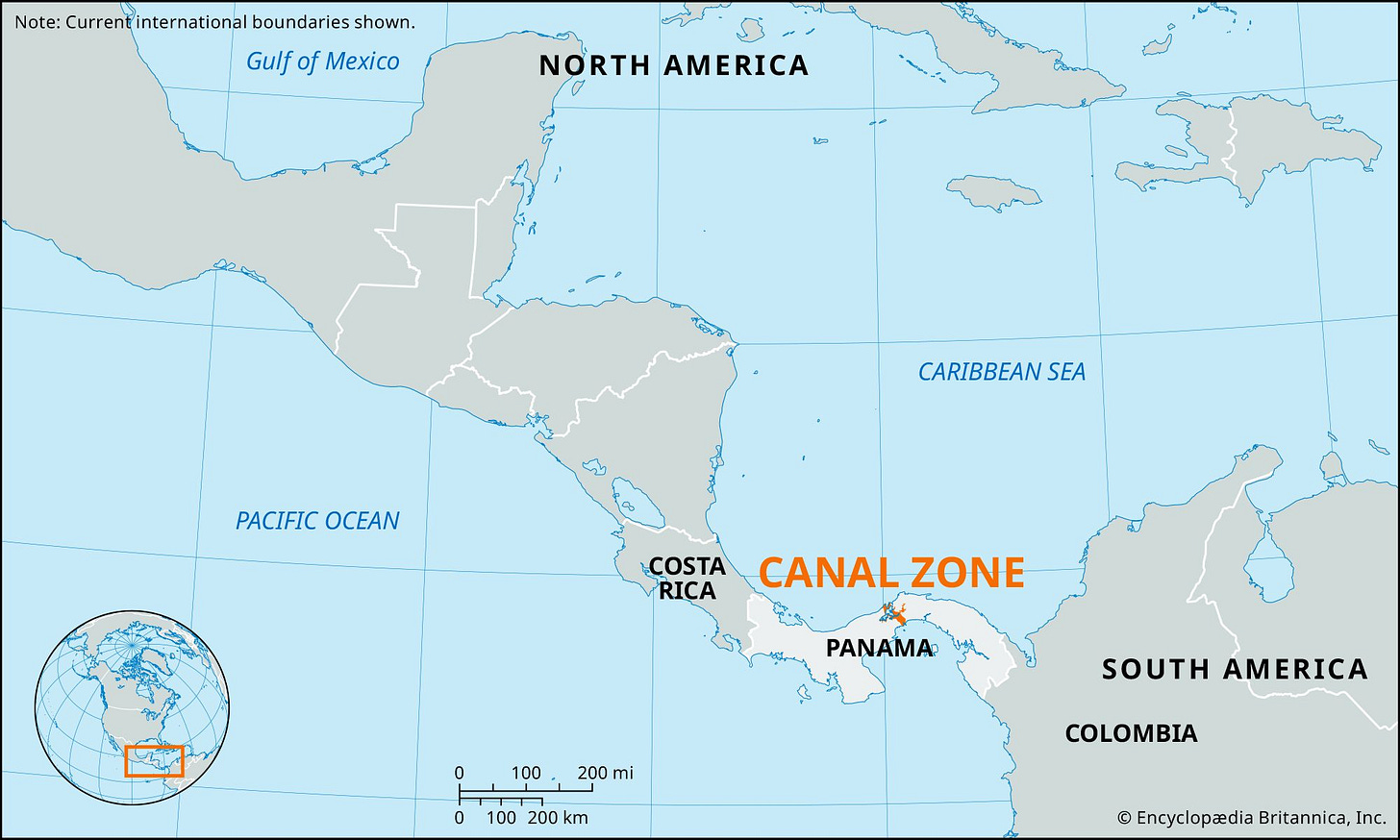Panama Canal: History, Geography, Economics, Geo-politics and Climate Change
Panama Canal Faces Unprecedented Challenges Amid Severe Drought.
A Drastic Reduction in Vessel Transit
Panama Canal officials have made an important announcement earlier this week, signaling a significant scaling down in the operations of one of the world’s most crucial maritime passages. The decision to reduce the daily number of vessels allowed to transit from an average of 36 last year to just 24 comes in the wake of severe drought conditions. This reduction is not merely an operational change; it carries substantial economic ramifications. The estimated losses from these cutbacks are expected to cost Panama nearly $700 million this year, a staggering figure that underscores the canal's economic importance, especially in the context of Panama’s relatively small economy.
The Global Impact of the Panama Canal
The Panama Canal, extending 50 miles across the Isthmus of Panama, isn't just a critical asset for Panama; it's a linchpin in global trade. Accounting for roughly 5% of the world's maritime volume and 40% of all US container traffic, this canal sees approximately $270 billion in cargo annually. Since its inception in 1914, the canal has not only facilitated trade between the US East Coast and Asia but has also been a testament to a feat of human engineering. The operation of this maritime marvel, which requires about 50 million gallons of fresh water for each of the 15,000 annual ships transiting its locks, is now under threat due to environmental challenges.
A Wider Context: Global Trade Under Strain
The impact of the Panama Canal's reduced capacity is amplified by concurrent global events. The world's other major canal, the Suez in Egypt, is also experiencing a decrease in traffic, compounded by escalating conflicts in the Middle East. This situation places an additional strain on global trade, which is already navigating a complex landscape of geopolitical tensions and supply chain disruptions.
The Carter Era: A Turning Point in Canal History
The transition of the Panama Canal from American to Panamanian control is inextricably linked with the leadership of U.S. President Jimmy Carter. During his presidency, a significant shift occurred in the geopolitical landscape surrounding the canal. The long-standing U.S. control, established as a symbol of strategic and commercial power, began to wane as Panamanian nationalism surged. It was under Carter's administration that the complexities of sovereignty and self-determination came to the forefront. The eventual relinquishing of control by the United States was a direct result of President Carter's vision and diplomatic efforts, highlighting a remarkable period of international cooperation and respect for national sovereignty.
Jimmy Carter's Legacy: Empowering Panama
December 31, 1999, marks a milestone in Panama's history, largely attributable to the diplomatic groundwork laid by President Jimmy Carter. The Torrijos-Carter Treaties, a cornerstone of Carter's foreign policy, facilitated the eventual transfer of the Panama Canal to Panama. This historic act was more than a mere administrative transition; it was a manifestation of Carter's commitment to international fairness and a recognition of Panama's right to self-governance. The handover of the canal under these treaties symbolized a new era in Panama's national identity, fueled by Carter's emphasis on equality and respect in international relations. This event not only reshaped Panama's role globally but also left an enduring mark on Carter's presidential legacy.
The Panama Canal: A Reflection of Climate Change's Impact
The Panama Canal, once hailed as a marvel of early 20th-century engineering and a symbol of human ingenuity, now faces an unprecedented challenge in the era of climate change. This historic waterway, crucial in shortening maritime routes and bolstering global trade, is now confronting the harsh realities of environmental change. The severe drought conditions currently affecting its operations are a stark reminder of the canal's vulnerability to ecological shifts. As a vital conduit for international commerce, the canal's strategic importance has always been intertwined with geopolitical and economic considerations. However, its current predicament underscores a pressing need for sustainable environmental practices. The reliance on vast quantities of fresh water for its lock system, now under threat, highlights the urgent necessity for adaptive strategies that respond to the evolving dynamics of climate and ecology. This situation not only reflects the immediate challenges faced by the canal but also serves as a microcosm of the broader environmental issues confronting global infrastructure in the age of climate change.
Concluding Thoughts: Navigating a Changing World
The current situation at the Panama Canal serves as a stark reminder of how climate change can manifest in numerous ways, impacting not just isolated regions but the global economy at large. It highlights the interconnectedness of environmental health and economic stability. As the world navigates these challenges, the Panama Canal's plight is a call to action - a reminder of the need for collective efforts in addressing climate change, ensuring sustainable practices, and preparing for the unpredictable ways in which our environment can shape global affairs.
Epilogue: De Lesseps' Dream Realized
'A man, a plan, a canal—Panama.' This palindrome, one of my favourites, succinctly captures Ferdinand de Lesseps' grand vision, epitomizing the journey from ambitious inception to the triumphant realization of the Panama Canal. It stands as a testament to perseverance, bridging the gap between bold dreams and monumental achievements.








Sir. A very well explained write up. Just wanted to add that although the final treaty was negotiated by Carter Administration ( Cyrus Vance) but most of the hard and leg work was done by Nixon administration ( Henry Kissinger was deeply involved). Reminds me of Kennedy’s getting credit for civil rights while the work done by Nixon is much more than he was given credit for. Such is the world of politics.